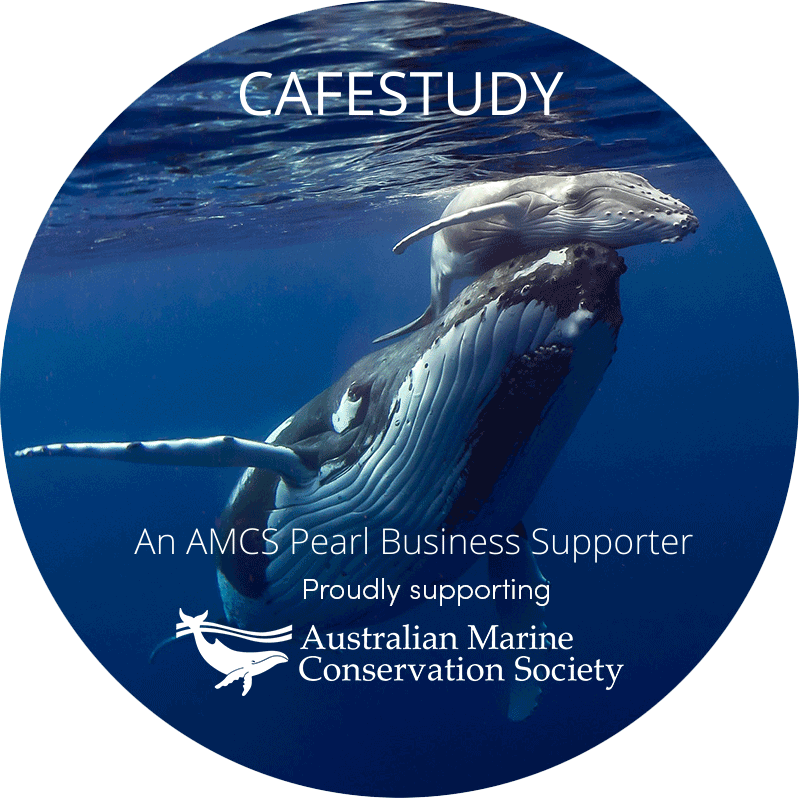RESPONSIBLE SERVING OF ALCOHOL
Posted by: shaz
3rd Apr 2025 06:13pm
Have you ever heard of anyone being fined under the RSA laws? I believe it should be policed which could make a huge impact on the road toll. I believe it is just a money making exercise to make people have to complete the course when it is not put into practice.
You must be a member to reply to this chat topic. Click here to sign in.
Help Caféstudy members by responding to their questions, or ask your own in Café Chat, and you will get the chance of earning extra rewards. Caféstudy will match these and donate equally to our two chosen Australian charities.

Australian Marine Conservation Society are an independent charity, staffed by a committed group of scientists, educators and passionate advocates who have defended Australia’s oceans for over 50 years.
ReachOut is the most accessed online mental health service for young people and their parents in Australia. Their trusted self-help information, peer-support program and referral tools save lives by helping young people be well and stay well. The information they offer parents makes it easier for them to help their teenagers, too.
Challenge Challenge is a not-for-profit organisation that supports children and families living with cancer, 365 days a year.
Our support is free and immediate, helping to lighten the cancer journey by addressing the practical, social, and emotional needs of all our members.
Our support is free and immediate, helping to lighten the cancer journey by addressing the practical, social, and emotional needs of all our members.



Comments 2
ab
Hi Shaz
No, I haven’t heard of a fine being issued, but then I don’t expect anyone having received a fine, would be bragging about it.
IMO the law is a ‘nice to have’ because it gives the police another tool to manage the issue. But then I imagine it would be quite challenging to enforce unless the police officer witnesses the event.
Some of the challenges I can see are:
• Is the person so drunk, they can remember the last bar he/she was drinking at?
• Did he/she personally buy the drinks or was person in a round?
• Reviewing the bar’s security footage to identify the bartender.
• Scrutinising the security video - did he/she appear identifiably drunk at the time?
I take your point that it may appear to be a money-making exercise, but the same could be said about, fishing licences, stamp duty, et al. Or the cost could just be enough to administer gaining the accreditation. I don’t know…
jtmorri
I have heard of people being fined for serving alcohol to an already intoxicated person who later due to a drink driving accident killed an innocent person. The RSA is about education for those who do serve alcohol. It provides them with tools to manage situations.
There are more factors to consider than the person serving alcohol in an establishment has an RSA. People serving alcohol do say to patrons, "I think you've had enough". Some will have their manager or security ask the person to leave the premises. The RSA training does work and establishments that I know are enforcing policies and procedures when required. A problem occurs when an intoxicated person isn't themselves going back to the bar and ordering, instead another person they are with is bring drinks back to them. So, round ordering is an issue, as people go unnoticed as being intoxicated but continue to drink alcohol on the premises. If an intoxicated person removed from premises doesn't go home safely and instead ends up at another drinking establishment, they should not be served alcohol. The person themselves needs to make the right decision. Again, the staff at any other establishment shouldn't serve them under any circumstances. The intoxicated person should then go home safely once they realise no one will serve them anywhere. If staff have further issue with an intoxicated person, they call the police who attend and take the person to the watchhouse to sober up.
There needs to be personal responsibility taken by the individual of how much alcohol they consume, if they drive or get an uber or lift with a friend. It all takes planning and forethought. There are breathalysers in premises and the whole appoint a Skipper campaign of looking after your mates.